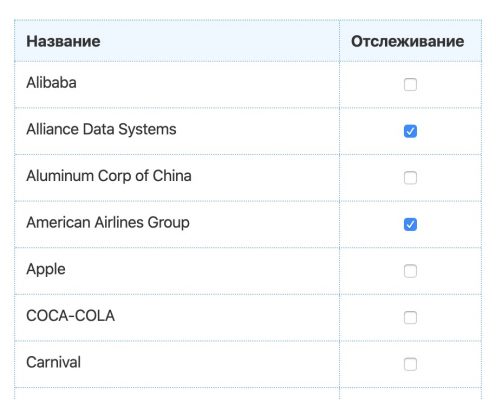Periods of mental efficiency. How to catch the moment?

Periods of mental productivity often come suddenly, for some it is early in the morning, for others closer to night. Does productivity time depend on our cycles or should we not trust these patterns and set our own rhythm? Let's look at how to take personal control of time and what tools can be used.
In touch RISE: Community about Nootropics and Biohacking. In this article, we will discuss how to master the skill and independently immerse yourself in work at the slightest need.
What are periods of mental performance based on?
Each person has their own periods of mental efficiency. But if we catch a wave of motivation and inspiration, it disappears into thin air too quickly.
The body is a combination of complex and multi-component systems. The moments of our peak efficiency are closely tied to the simultaneous work of all these systems. Therefore, it is pointless to focus on only one path. It is much more effective to pay comprehensive attention to the body. And to start from the foundation. Namely, from ultradian rhythms.
Ultradian Rhythms and How to Track Them

Ultradian rhythms are small cyclic periods within day and night. We don’t notice them during the day, but if you use a smart bracelet to track your sleep, you know about sleep phases. Exactly the same phases are present during the day, determining our alertness/fatigue mode. And these phases are tied to melatonin.
Melatonin, which answers the question of how to improve sleep, has a more subtle effect on the body. It regulates our state within life: childhood, adolescence, adulthood, old age. And the state within the day and night. Here is what is important to know about melatonin and ultradian rhythms:
The peak melatonin level is important before bedtime, so it is better not to sit up late with a smartphone, and to close the windows with thick curtains.
Melatonin regulates our cycles. For effective sleep, it is important to fall asleep and wake up at the same time every day. Mental performance periods work in the same way. If you sit down to solve specific problems at the same time every day, you will be able to do them better and better.
If you feel that your melatonin is not enough, you can take a course of melatonin supplements to normalize circadian rhythms.
To track ultradian rhythms, it is enough to follow the rule 90/30. 90 minutes of work, thirty minutes of rest. This is optimal if you work freelance. If in the office, try to allocate 90 minutes for hardcore problem solving, and 30 minutes for tea, coffee, conversations and social networks.
External factors that affect periods of mental performance

Getting into a flow state is quite simple. You need to pay attention to a specific task and completely immerse yourself in solving it. The problem is that 15 minutes of uninterrupted work may seem unrealistic. To concentrate, you can:
Disclaimer of applications: Get a cheap work phone, set black and white mode, delete entertainment apps. Any entertainment/news apps eat up dopamine. It feels good in the process, but it drains your energy in the long run.
Correction with music. It is difficult to work with music, and precisely because of the dopamine swings. An alternative can be pink or brown noise. Also background sounds of nature: the buzzing of bees, the rustling of leaves, the sounds of rain. If they sound in headphones and cut off external sounds, then it is absolutely wonderful.
Mental reboot. This can be called a short meditation, which lasts 7-12 minutes. Everything is like in the classic exercise: sit down, close your eyes and focus on breathing. This exercise will allow you to clear your mind of fussy thoughts and better concentrate on work. Twice a day is optimal: in the morning to clear your head, in the afternoon to unload from the routine.
If you procrastinate, take a rest. The most common problem is when you are not too tired, but also not in the mood for work. And now you are reaching out to scroll through the feed or get stuck in a game, and then you eat packs of anti-stress pills, anticipating an approaching deadline. Therefore, the best solution during the day would be a light nap or a walk. 15-30 minutes will not make much difference, but will help pump up the body's capabilities simply amazingly!
These are all simple actions that we most often neglect. They seem big, excessive, wrong in the eyes of others. But they act quickly, give results and help to maintain focus on solving a specific task.
Biomechanics of mental performance

What happens in the brain is a separate universe. The methods listed above affect the general state of the brain and work only if resources are available. For a burned out, hungry and sleep-deprived person, the methods listed above will be like a poultice for a dead person. But there are other tools.
Brain Neurohormones for Performance
It is important not so much to increase the production of a specific neurohormone, but to ensure a uniform synthesis of all the ingredients of productivity. All these pillars on which periods of mental performance are based are produced in the brain, in particular:
Norepinephrine. This is the foundation of efficiency. It is actively boosted in the first half of the day, or in the presence of mild stress. Awareness of the deadline is the very stress factor that helps to immerse yourself in work.
Acetylcholine. In the body, it acts as a conductor between the brain and muscles. But inside the brain, it is more like a spotlight. It illuminates specific areas of the brain, switching and holding attention on specific objects.
Dopamine. The longer dopamine is released, the longer the periods of mental performance last. It can be compared to a gas burner on a cylinder. Productive work is a valve turned all the way up. And scrolling through social networks is a knocked-out valve and a meter-high column of fire. Together, dopamine and norepinephrine create a strong alliance, increasing personal effectiveness.
Serotonin and Melatonin. Periods of mental performance correlate with periods of rest and relaxation. And here serotonin and melatonin help to get the most out of a state of rest and relaxation.
How to improve the production of neurohormones?

The peculiarity of neurohormones is that you can’t just “throw them in” and expect vigor and efficiency. The brain vessels are covered from the inside with a dense endothelium, which is called the blood-brain barrier, also known as the BBB. The BBB does not allow hormones to pass from the bloodstream. But precursors can pass through the BBB, the same 7 simple substances answer the question of how to improve concentration. In fact, the brain itself synthesizes everything it needs from these substances:
Caffeine and L-Tyrosine. This couple gives us dopamine. Caffeine increases the sensitivity of dopamine receptors, and L-tyrosine promotes the production of this neurohormone. Together, they create a cumulative effect. After all, from excess dopamine, the brain creates norepinephrine, the second most important neurohormone of focus. Together, dopamine and serotonin provide an internal feeling of happiness.
Choline. You can use DMAE, choline alfoscerate (Cereton, Gliatilin). The brain uses this supplement to create acetylcholine.
5-HTP and Tryptophan. Precursors of melatonin and serotonin. Best used before bedtime for deeper rest and recovery.
Adaptogens. A separate group of supplements aimed at balancing internal processes in the brain. They promote general adaptation of the brain to environmental stimuli.
B Vitamins and Magnesium — nutrition for the central nervous system. The load on the brain does not fall only on the gray matter. It falls on all body systems, and the central nervous system takes the greatest load, and magnesium deficiency suppresses it quite strongly. It is for its restoration and growth that magnesium and B vitamins are necessary.
Periods of mental efficiency occur when there is a resource in the body. There must be both a light external stimulus and internal fuel that will be used to get closer to the goal. Otherwise, the spark of motivation will go out before it can create a flame.
Day/Night Activity

There is a classic distribution that people are divided into larks and owls (and now also into pigeons). In fact, we are talking about human adaptation to the environment, and the development of its own work algorithm. And the body, accordingly, provides support for the cycles being formed:
Larks know that in the morning no one will distract them, there will be no new tasks, and they can deeply immerse themselves in work without being distracted by trifles.
The same applies to owls, who are not disturbed at night, and there is the opportunity to work peacefully in silence.
There are also those people who work calmly during the day, having learned to adequately deal with irritating factors, or having successfully created optimal conditions for themselves. They are referred to as “pigeons”.
There are no “best and worst” periods for performance in terms of time of day or place of work. There is individual adaptation to the external environment, there are nootropics that work in difficult moments, and there is an understanding of how the body works and the use of additional tools for general support.
Conclusion

So what are the periods of mental performance tied to?
A person's well-being is based on a set of conditions. These include: the general condition of the body, the presence of internal resources, external conditions, additives/nootropics that “chemically” stimulate work and the regularity of actions performed day after day.
Article written by Philip D, community member Rise: Nootropics and BiohackingBy the way, we publish content in shorter formats on other platforms.





